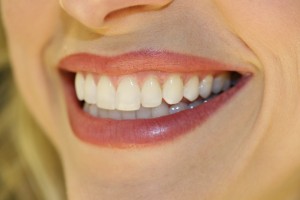Alcohol in any form, when put in your mouth, can be detrimental to your oral health, especially if entering your mouth more than twice a day. For example, rinsing with mouthwash containing ethanol – a colorless alcohol – may put you at a higher risk of oral cancer. Many prefer mouthwash with ethanol over alcohol-free mouthwash because of its simultaneous cooling/burning effect in the mouth that makes it feel squeaky clean. This sensation is due to the drying effect of ethanol. In addition, mouthwashes with alcohol often contain chlorine, which kills bacteria, but can cause tooth staining. Long-term use of alcohol-containing mouthwash can also alter the functioning of your taste buds.
Alcohol Products and Oral Cancer
Alcohol is the second most prevalent risk factor for oral cancer, only behind tobacco products. Although a few beers never directly caused oral cancer, heavy drinkers are at a much higher risk of developing oral cancer than non-drinkers. When in a concentration high enough (typically 25 percent, or 50 proof), using mouthwash with alcohol can even place you in the ‘heavy alcohol user’ category. This common percentage of alcohol in mouthwash is four to five times the concentration in beer, twice as much as wine, and equal to some hard liquors.
Does Alcohol-Free Mouthwash Have Effective Cleaning Power?
Fortunately, ethanol is not the only ingredient in mouthwash that can offer bacteria-killing effects and fight tooth decay. Chlorhexidine gluconate is an antimicrobial ingredient that can be added to alcohol-free mouthwash for the treatment of gingivitis, a gum disease causing swollen and/or bleeding gums. The bottom line is that it’s relatively easy to find an alcohol-free mouthwash that improves your oral hygiene and freshens your breath just as effectively as mouthwash containing alcohol. Additionally, some medical conditions can benefit from switching to alcohol-free mouthwash, including:
- Dry mouth: Also known as xerostomia, dry mouth is caused by decreased saliva flow caused by systemic diseases, medication, or radiation treatment. As mentioned, ethanol has a further drying effect on the mouth.
- Burning mouth syndrome: Ethanol can exacerbate symptoms of this medical condition, and other oral irritations.
- Sensitive gums: It is recommended that you use a special toothpaste, as well as gentle, alcohol-free mouthwash if you have sensitive gums.
- Diabetes: This disease can cause gum inflammation, mouth sensitivity, and sensitive gums, all of which can make rinsing with regular mouthwash an unpleasant experience.
- Pregnancy: There is no known quantity of alcohol that is considered safe for an unborn baby.
- Sharing your mouthwash with a child: Swallowing any mouthwash with alcohol can be dangerous for children.
Unless you really enjoy the cooling and burning sensation that ethanol provides, using mouthwash with alcohol can be detrimental to your oral health by putting you at a higher risk for oral cancer and exacerbating symptoms of other medical conditions. Please contact River Valley Smiles at 479-646-0706 for more information about your specific oral health concerns.


